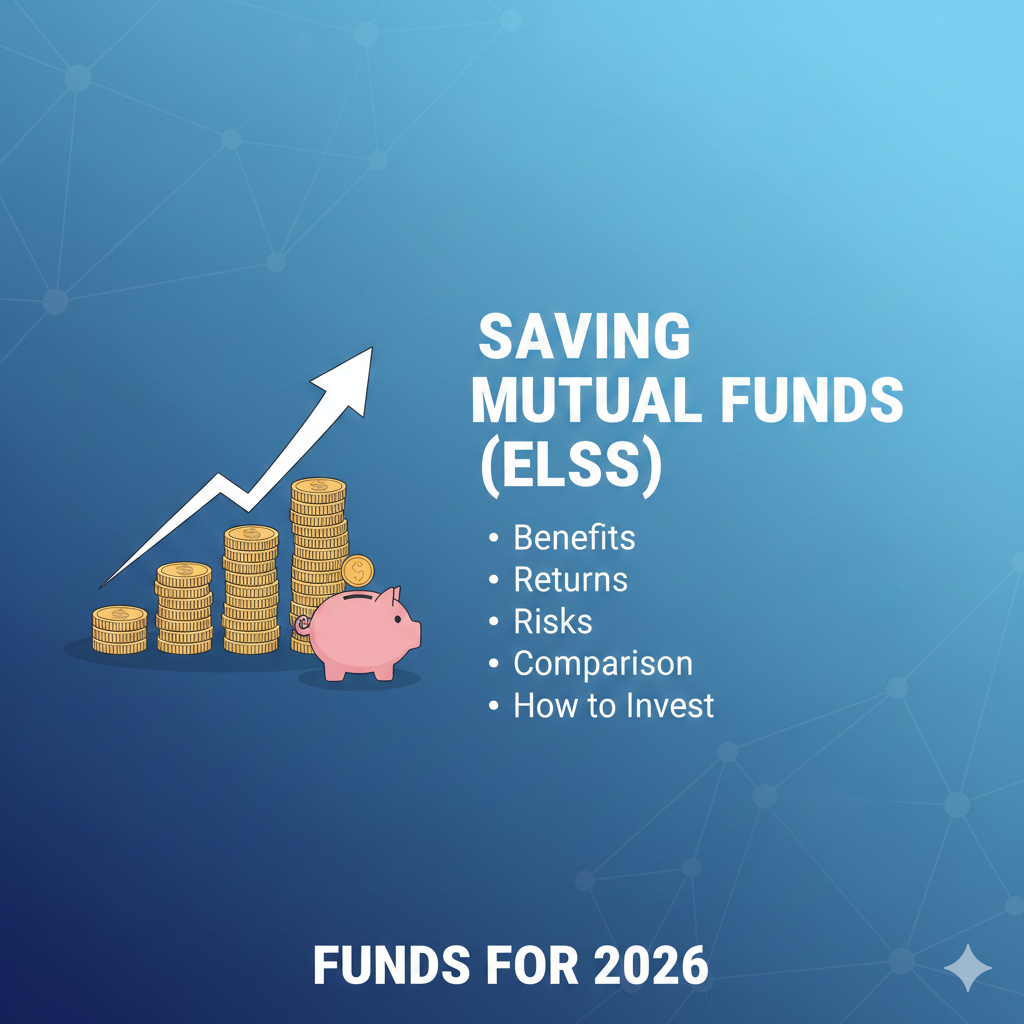What is NFO in Mutual Funds

Introduction:
New Fund Offer (NFO) is a term that mutual fund investors generally listen to. It is an initial public offering launched by an Asset Management Company (AMC) or fund houses. NFO mutual fund provides its investors a unique opportunity in which they can invest in a newly launched fund that has just entered the market, meaning investors can subscribe to the funds at an initial price, before the funds become public for regular trading.
In this article, we will discuss NFO mutual funds in detail – what are their benefits, types of NFO, how to invest in the NFOs, and much more.
New Fund Offers (NFOs) – Meaning
A New Fund Offer refers to the launch of a new mutual fund scheme. During an NFO, the mutual fund house invites different investors to invest in units of the new scheme. This phase of initial investment remains open for a fixed period of time (as per SEBI, the period is maximum of 30 days), after which the NFO concludes and the stocks are available for the regular trading.
Different Types of New Fund Offers (NFOs)
There are different types of NFOs based on the structure and the features of the scheme. These include:
- Open-Ended NFOs: Open-Ended NFOs are mutual funds where the number of units of the fund keeps fluctuating with a corresponding demand. Here the individuals can procure units of the fund before its Net Asset Value (NAV) is determined, thereby allowing them to gain profits in the longer run.
- Close-Ended NFOs: Close-Ended NFOs are associated with a fixed corpus, which is raised through NFO. Once the subscription period (maximum of 30 days) is over, investors can not add new funds to their portfolio, and the NAV of the fund is determined based on the number of units in circulation with respect to the total value of underlying assets.
- Interval Funds: These are the mix of open-ended and close-ended NFOs. These behave like close-ended funds, meaning that you cannot jump in or out whenever you like. Having said that, these NFOs allow you to buy or sell parts of your holdings at specific intervals.
How Does an NFO Work?
Any new mutual fund scheme launched by an AMC is known as NFO. During the NFO period, investors can subscribe to units at an initial price. Once the NFO period concludes, the fund is officially launched and the investors can buy or sell their units at the NAV on the stock exchange.
Fund managers, then, allocate the capital raised during the NFO to various assets based on the objective of the fund. This is interesting to note here that while NFOs offer an opportunity for investors to enter early into a new fund, and with a low initial investment, investors need to do thorough research and planning. It is important as it will help in assessing the suitability and risk factors associated with the fund.
What are the Benefits of a New Fund Offer (NFO):
There are several benefits of investing in a new fund offer, some of them include:
- Fresh Investment Opportunity: NFO is the launch of a new Mutual Fund scheme, where investors can enter before the fund goes public. This could bring great returns to the investment.
- Low Initial Invest: NFO units are generally offered at a very low fixed price, as low as Rs 10 per unit. This makes them accessible to the investors with a modest budget.
- Unique Investment Themes: There are some NFOs that bring innovative and specialized investment themes of strategies to the market. This allows investors to diversify their portfolios, and gain good returns.
- Opportunity to Capitalize on Future Performance: If the NFO is managed effectively, and aligns with your financial goals, you can achieve good returns from the fund’s performance over time.
- Professionally Managed: Being mutual funds, these are managed by experienced fund managers. This uniqueness increases the possibility of success in the long run, and your chances of achieving your financial goals.
How to Invest in a New Fund Offer (NFO)?
You can directly invest through fund houses, both online, and offline. Here are the steps to follow:
- Step 1: Visit the mutual fund house website, and select the number of units to subscribe.
- Step 2: Now, select your payment method.
- Step 3: Complete the Know Your Customer (KYC) process, and apply for NFO.
The fund house will credit fund units within five days if the NFO is successful.
Things to Keep in Mind Before Investing in NFO Funds:
While investing in NFOs is a lucrative option, it is important to consider a few things to ensure successful returns. Some of the things that you need to consider include:
- Understand the objective of the fund, and make sure that it aligns with your investment goals.
- NFOs can carry higher risk; therefore always check the risk level before investing.
- Compare the NFOs with the existing mutual funds of the similar category. This will help you make an informed choice based on consistency and alignment with your needs.
- As the fund manager will be taking care of your fund, check for his credentials and past track record.
Important rules around NFOs
Securities, and Exchange Board India (SEBI) has mapped certain guidelines and regulations on the accumulation of funds during NFOs. Here are some of the important ones:
- The minimum subscription amount for debt-oriented and hybrid schemes must be at least Rs 20 crore. And, for other schemes, it must be at least 10 crore.
- The MF company launching a new scheme must ensure that the amount collected during an NFO is from a minimum of 20 investors
- No single investor can have more than 25% of the scheme’s corpus, ensuring that the investment concentration is spread among multiple investors
- Fund houses launching new funds must invest in the scheme with the amount based on the risk level of the scheme.
What happens after an NFO period?
Once the NFO period concludes, within 5 working days the companies are allotted their units. For open-ended schemes, investors can continue to buy units. However, for the close-ended schemes, the buying of units ceases, as the scheme allows purchases only during the NFO period.
What is the Minimum Investment Amount for an NFO?
The minimum investment for a New Fund Offer (NFO) typically begins at ₹500 or ₹1,000, though the exact amount varies across mutual fund companies. This relatively low entry point makes NFOs accessible even to first-time investors. In some cases, funds may specify a higher minimum, particularly when designed for specific investor categories or strategies.
It is essential to review the NFO offer document carefully to confirm the minimum investment requirement. More importantly, ensure that the investment aligns with your overall financial plan, risk tolerance, and long-term objectives. While the minimum threshold may seem affordable, understanding the product before committing is crucial.
Disadvantages of New Fund Offers (NFOs)
Every investment has its set of advantages and disadvantages, and NFO schemes are no different. Here are some of the disadvantages of a NFO:
- As there are no track records, it is challenging to assess the fund’s expertise and execution.
- NFOs offer no special benefits during its initial phase.
Conclusion:
New Fund Offers (NFOs) allow investors to explore fresh opportunities in mutual funds, often at a relatively low entry point. They can provide access to new themes, diversification benefits, and innovative investment strategies. However, investors must remember that NFOs, like any other mutual fund, are subject to market risks and should be chosen with care.
Before investing, it is essential to read the offer document carefully, assess whether the fund aligns with your long-term financial goals, and understand your risk tolerance. At Mentor Wealth, we guide investors in evaluating NFOs objectively, and help them determine whether the NFOs suit their portfolio and ensure that their investments are aligned with their wealth-building journey.

Let’s grow your wealth, together
We’ve Spent 10+ Years Helping Clients
Like You Find Financial Confidence
Insights that empower your investments
Explore expert-written blogs on mutual funds, market trends,
and smart investment strategies
Let's build a wealthy Tomorrow
25+ years of experience helping investors find financial confidence



